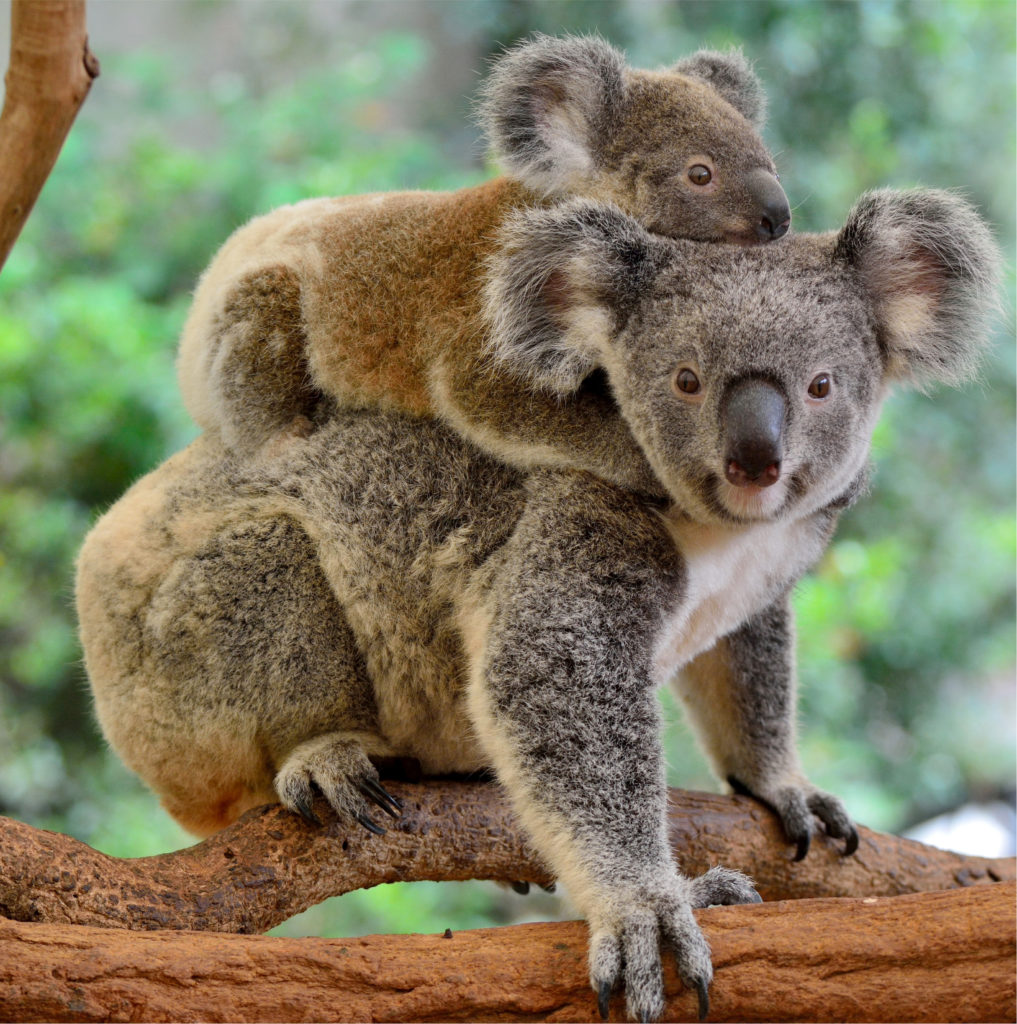Pam England
My son Sky told me a story about how changing the gut microbiome of koalas in Cape Otway in Victoria, Australia, saved their lives. In 2013, 70 percent of koalas died, literally fell from the trees onto the ground below, from starvation . It turns out that some koalas eat a variety of eucalyptus, but others are pickier and only eat one variety, either messmate or manna gum. Their thriving population of 8000 resulted in the defoliation of manna gum trees. So, even though another variety of eucalyptus (messmate) was available, the manna gum-eating koalas were starving because they couldn’t eat it. Why was that? Scientists in Queensland went to work on the problem and discovered that koalas gut microbes influenced which species of eucalyptus they wanted to eat.
Scientists experimented with fecal transplants by encapsulating feces from koalas who did eat messmate and feeding it to the koalas who only chewed manna gum. Altering the manna gum eaters gut microbiome to be more like the messmate eaters changed what the starving koalas would or could eat (over 18 days). The more their microbiome changed, the more messmate they were able to eat. (1,2)
This raises questions about human food cravings and aversions: Are picky-eaters picky because of their gut microbiome? Would picky-eaters (in particular, I am thinking of kids) want to eat a wider variety of healthy foods if their gut microbiome was enriched? Does enriching the diet enrich the microbiome? Yes, and Yes: It’s a two-way street!
Gut microbiome does influence food cravings, behavior, mood, and overall health. Your gut microbial community informs your brain what foods your body “needs.” Eating a green salad increases certain microbiome. And, eating greasy processed food increases and decreases other microbiomes. As the numbers of microbiome change, your body responds to the number of different substances that are secreted, which activate genes and the absorption of nutrients. (3)
References:
- Carolyn Wilke (2019, August 27). Fecal transplants might help make koalas less picky eaters. Animal Microbiome. Retrieved from: https://www.sciencenews.org/article/fecal-transplants-might-help-make-koalas-less-picky-eaters
- Jackie Flynn Morgensen (2019, Aug 20). “The Key to Saving Starving Koalas Might Be…Their Poop: Researchers in Australia just developed the first-ever koala fecal transplant.” Mother Jones.
- Knvul Sheich (2017, April). Gut Bacteria Tell their Hosts What to Eat. Neuroscience.

